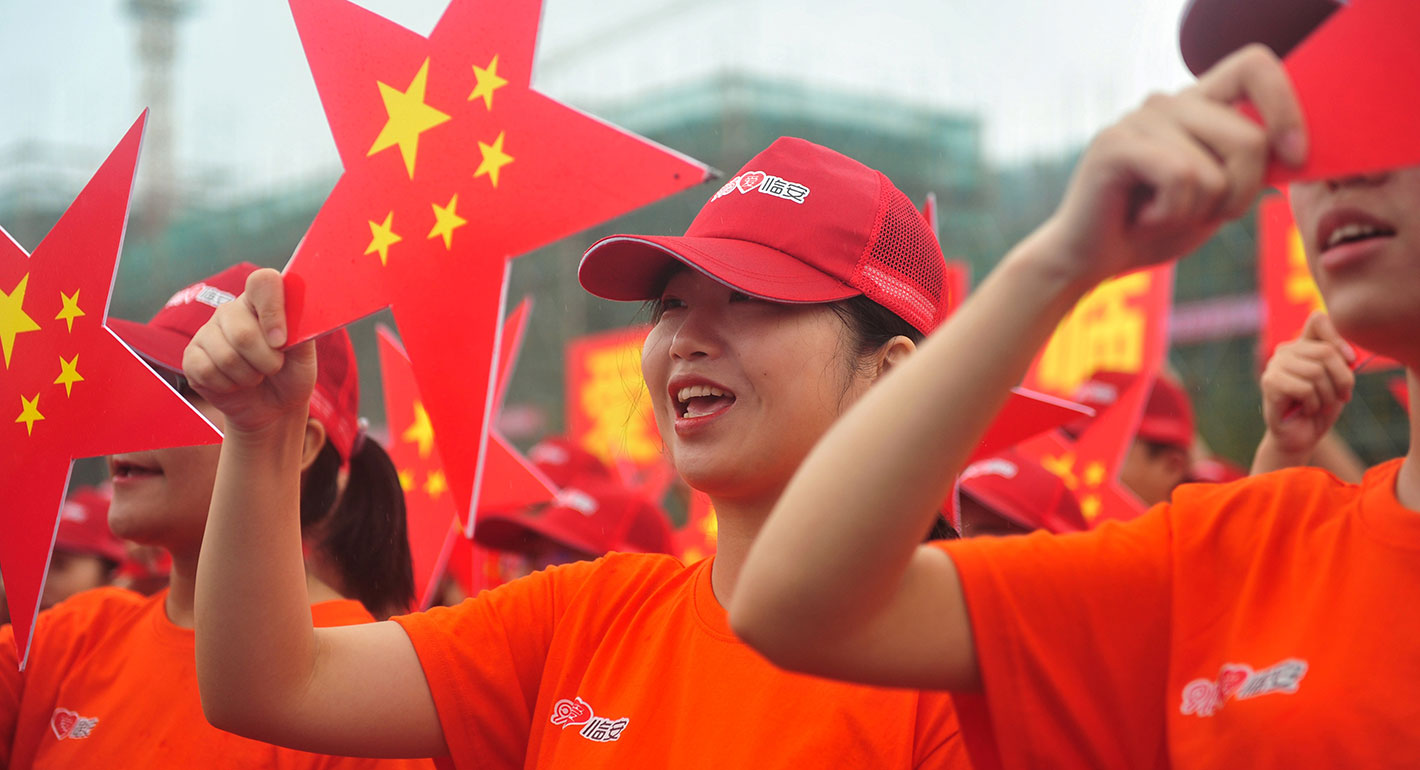Dramatic changes in China and the United States have caused tremors in the bilateral relationship. Shifts in Beijing’s domestic politics and foreign policy, combined with changes in Washington, are catapulting U.S.-China ties into a new era. There is a growing consensus in the United States that future relations with China will likely be dominated by economic, technological, and military competition.
At First, Open Distrust
For most of the first three decades after the founding of the People’s Republic of China on October 1, 1949, Washington saw Beijing as an ideological and military adversary. The victory of Mao Zedong’s Chinese Communist Party over the Nationalist Party (Kuomintang) coincided with the Cold War between Washington and Moscow. In the early years of Mao’s rule, the United States maintained official relations with the Nationalist Party government, whose leaders had fled to Taiwan.
On October 1, 1950, exactly one year later, U.S. soldiers crossed the Thirty-Eighth Parallel on the Korean Peninsula, entering North Korea. China would fight its first war as a sovereign nation against the United States a few weeks later—the Korean War.
A Tentative Friendship
In the 1960s, two important developments changed this trajectory. First, diplomatic relations between China and the Soviet Union became strained, at a time when Moscow loomed as Washington’s most threatening adversary. Second, the Sino-Soviet split led to new thinking in the United States about the potential benefits of improved relations with China.
Ping-pong diplomacy in the early 1970s ( a series of people-to-people exchanges involving table tennis players from the two countries), then secretary of state Henry Kissinger’s secret China visit, and former president Richard Nixon’s historic trip to China in 1972 all laid the foundation for the normalization of relations on January 1, 1979.
Reform and Opening Up
This was a turning point in the U.S.-China relationship. It coincided with Beijing’s monumental decision to begin economic reform and opening up. Chinese experts often note the Chinese decision was deeply intertwined with the normalization of bilateral relations. China’s reform and opening up brought great benefits to the Chinese people over the next several decades. Unsurprisingly, it also led to concomitant improvements in U.S.-China relations, including deeper people-to-people ties and economic links.
New Strains in the Relationship
In the fall of 2013, Beijing’s new leaders announced an ambitious set of economic reforms that led many to believe China’s process of reform and opening up would continue and even accelerate. These reforms were presented as being in line with the country’s national interests and aimed at driving its continued development.
Disappointingly, this process has stalled over the last several years, and in many cases, it has even been reversed. Not surprisingly, China’s economy is slowing down, U.S.-China relations are under great strain, and other developed nations are voicing concerns about Beijing’s changing domestic and international behavior. However, there is still a win-win solution to be had. If Beijing were to pursue reform and opening up, it could further its own development and help alleviate strains in relations with the United States and the world.
On October 1, 2019, China will celebrate the seventieth anniversary of its founding. This year also marks forty years since the beginning of China’s reform and opening up and the normalization of U.S.-China relations. One of the most important questions these anniversaries raise is: Will China continue to reform and open up?
This quick take is part of a series authored by scholars from across the Carnegie Endowment’s global network, in advance of the seventieth anniversary of the founding of the People’s Republic of China.
- How Has the U.S.-China Relationship Changed Over Seventy Years?
Paul Haenle - How China Became Russia’s Most Important Partner
Alexander Gabuev - How Has Europe’s View of the People’s Republic of China Changed?
Judy Dempsey - How Has China’s Role in the Middle East Evolved?
Maha Yahya - Three Lessons China Has Learned About Global Governance
Lyu Jinghua - A Brief History of India’s Relationship with the People’s Republic of China
Srinath Raghavan









